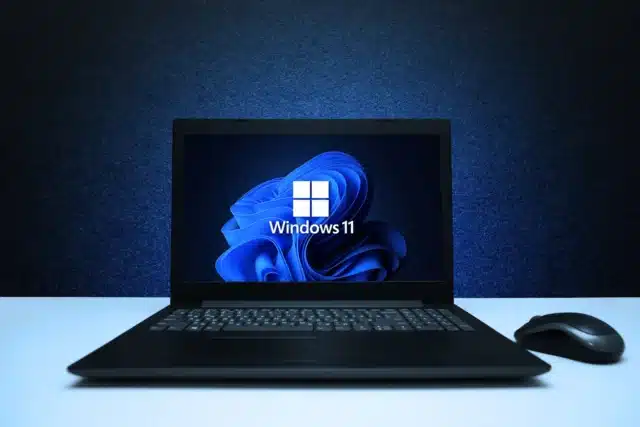
As we approach the end of the month, we reach the time when Microsoft releases preview versions of the updates that will get official launches next Patch Tuesday. This time around, it is the KB5028245 update for Windows 11.
With this cumulative update, Microsoft addresses a series of problems in Windows 11 21H2, including a VPN issue that could lead to excessive ARP requests to the network gateway. Also fixed are a bug that causes incorrect reporting of the L2 cache, and another that prevents the Windows Notification Platform from issuing notifications from apps.
Microsoft draws attention to two highlights of the optional, non-security update. The company says that it addresses an issue that affects certain display and audio devices. They are missing after your system resumes from sleep.
It also points out:
This update addresses an issue that affects virtual private networks (VPN). There might be excessive Address Resolution Protocol (ARP) requests to the network gateway. This occurs when the VPN is on a wireless mesh network that uses an aggressive throttling algorithm. Because of this, network performance is poor.
The full list of changes in this update is as follows:
- New! This update affects the Handwriting Software Input Panel (SIP), the Handwriting Engine, and the Handwriting Embedded Inking Control. They now support GB18030-2022 conformance level 2. Because of this, they meet the level 3 requirements.
- This update affects the Windows Push Notification Services (WNS). It makes the connection between the client and the WNS server more reliable.
- This update addresses an issue that affects UI Automation and caching mode.
- This update addresses an issue that affects the Windows Notification Platform. It fails to send notifications from applications to you.
- This update addresses an issue that affects hybrid joined devices. You cannot sign in to them if they are not connected to the internet. This occurs when you use a Windows Hello for Business PIN or biometric credentials. This issue applies to a cloud trust deployment.
- This update affects Windows Autopilot profiles. The process to download the Windows Autopilot policy is more resilient. This helps when a network connection might not be fully initialized. This update increases the retry attempts when you try to download the Windows Autopilot profile.
- This update addresses an issue that might affect Win32 and Universal Windows Platform (UWP) apps. They might close when devices enter Modern Standby. Modern Standby is an expansion of the Connected Standby power model. This issue occurs if certain Bluetooth Phone Link features are turned on.
- This update addresses an issue that affects the Windows Management Instrumentation (WMI) repository. This causes an installation error. The issue occurs when a device does not shut down properly.
- This update addresses an issue that affects certain CPUs. There is inconsistent reporting of the L2 cache.
- This update addresses an issue that affects Event Forwarding Subscriptions. When you add an Event Channel to the subscription, it forwards events you do not need.
- This update enhances hinting for some of the letters of the Verdana Pro font family.
- This update affects user mode printer drivers. They unload unexpectedly. This occurs when you print from multiple print queues to the same printer driver.
- This update addresses an issue that might affect your computer when you are playing a game. Timeout Detection and Recovery (TDR) errors might occur.
- This update affects text edit controls in XAML. You cannot edit the controls again after they become read only. This occurs when you use the new Microsoft Input Method Editor for Japanese, Chinese, and Korean.
- This update makes Narrator announce the “Change product key” label.
- This update addresses an issue that affects the Defender Firewall Profile. It fails to automatically switch from a LAN that is trusted to a public network.
- This update makes Country and Operator Settings Asset (COSA) profiles up to date.
- This update addresses a deadlock in Internet Protocol Security (IPsec). When you configure servers with IPsec rules, they stop responding. This issue affects virtual and physical servers.
- This update addresses an issue that affects the MPSSV service. The issues causes your system to restart repeatedly. The stop error code is 0xEF.
- This update addresses an issue that affects a Clustered Shared Volume (CSV). The CSV fails to come online. This occurs if you enable BitLocker and local CSV managed protectors, and the system recently rotated the BitLocker keys.
- This update addresses an issue that causes Windows to fail. This occurs when you use BitLocker on a storage medium that has a large sector size.
- This update affects the Windows Kernel Vulnerable Driver Blocklist, DriverSiPolicy.p7b. It adds drivers that are at risk for Bring Your Own Vulnerable Driver (BYOVD) attacks.
- This update addresses an issue that affects the fastfat file system driver. It stops responding because of a race condition.
- This update addresses an issue that affects refsutil.exe. Options, like salvage and leak, do not work properly on Resilient File System (ReFS) volumes.
- This update addresses an issue that affects I/O over Server Message Block (SMB). It might fail when you use the LZ77+Huffman compression algorithm.
If you would like to install the KB5028245 update ahead of next month’s wider rollout, you can check for optional updates, or simply grab it from the Microsoft Update Catalog.
Image credit: vadimrysev / depositphotos
